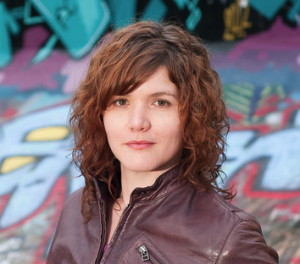Graduated: 2010 – MOT MBA
Current Job: Consultant at Rhonda Wideman Consulting
LinkedIn: http://www.linkedin.com/pub/rhonda-wideman/a/4a0/622
Can you describe your career path and how you started your own company ?
I graduated from the MOT MBA program in 2010; at the time I was in a great research management role at a local non-profit biomedical organization. That role grew and changed quite a bit over the following several years and gave me lots of great experience managing cross-disciplinary research teams, project management, IP management, strategic planning, and business development. But I’ve always been really interested in consulting, so in 2013 I left and started my own consulting company.
What do you love most about your job?
The variety. I work with a range of different clients from academic, non-profit, and business sectors, all with unique organizational needs and interests. So the subject matter I work on changes frequently. The other thing I love is the flexibility that consulting affords: working for myself gives me the ability to arrange my own schedule. It’s a luxury to be able to break up the day with a mid-day run in the sunshine!
Did you change your career after completing your MBA? If so, describe your transitioning experience.
I had a career change mid-MBA, from an academic environment where I was working as a postdoctoral researcher, to managing biomarker R&D in a non-profit environment. Post MBA, I transitioned again into self-employment. Both experiences were kind of disorienting but such rich opportunities for learning and growth. Transitioning can be really energizing and also really hard work. Perhaps the most important thing I learned from those experiences was to keep your personal switching costs low. Try to avoid building a lifestyle or a personal identity that is so deeply entrenched in a particular work role or sector that your sense of self-worth or your financial security is threatened by a transition.
Who / what inspires you the most?
Lately I’ve been thinking about my parent’s career paths … they both grew up in what is now the Greater Toronto Area, and wanted to start a dairy farm, but farmland was too expensive in that area. So they picked up and moved several hours away to an area where they could afford more land. They didn’t know anyone there, and I’m sure it was a terrifying move at a time when people didn’t take trips, even car trips, the way we do now. I didn’t think about them as being entrepreneurs as a kid, but of course farming was and still is a complicated and capital-intensive business. After twenty-five years of farming, they decided they were ready for a different kind of work. There were three businesses for sale in the area at the time—a hardware store, a car dealership, and a garden furniture company— and for the past fifteen years or so they have been in the garden furniture business—a complete switch. They are great examples of working hard, not losing sight of their core values, and being open to opportunity and change.
What is the most valuable skill you learned during your time in the MBA program?
I would say it wasn’t a skill so much as an attitude: keep an open mind, ask a lot of questions, be ok with the possibility that you might look dumb, embrace opportunities to learn and grow.
What’s the single best piece of career advice you can give to soon-to-be grads?
The best career advice I think I was ever given was to be open to and really consider opportunities that, at first glance, don’t seem like what you were planning for. I didn’t really understand this until much later, reflecting on where the big inflection points had been in my own life. Without fail, my biggest personal and professional growth has come from opportunities that weren’t a clear “Yes” when they first presented themselves. The education system is very good at teaching a “plan and implement” approach — identify the desired outcome, develop of plan of attack, and execute that plan. Of course you need some idea of where you’d like to end up in your career as well, but most of our careers aren’t linear. Taking a “test, learn, and adjust” approach, accepting unanticipated opportunities, and always assessing why certain roles work or don’t work for you can take you into unexpected and deeply fulfilling work.
